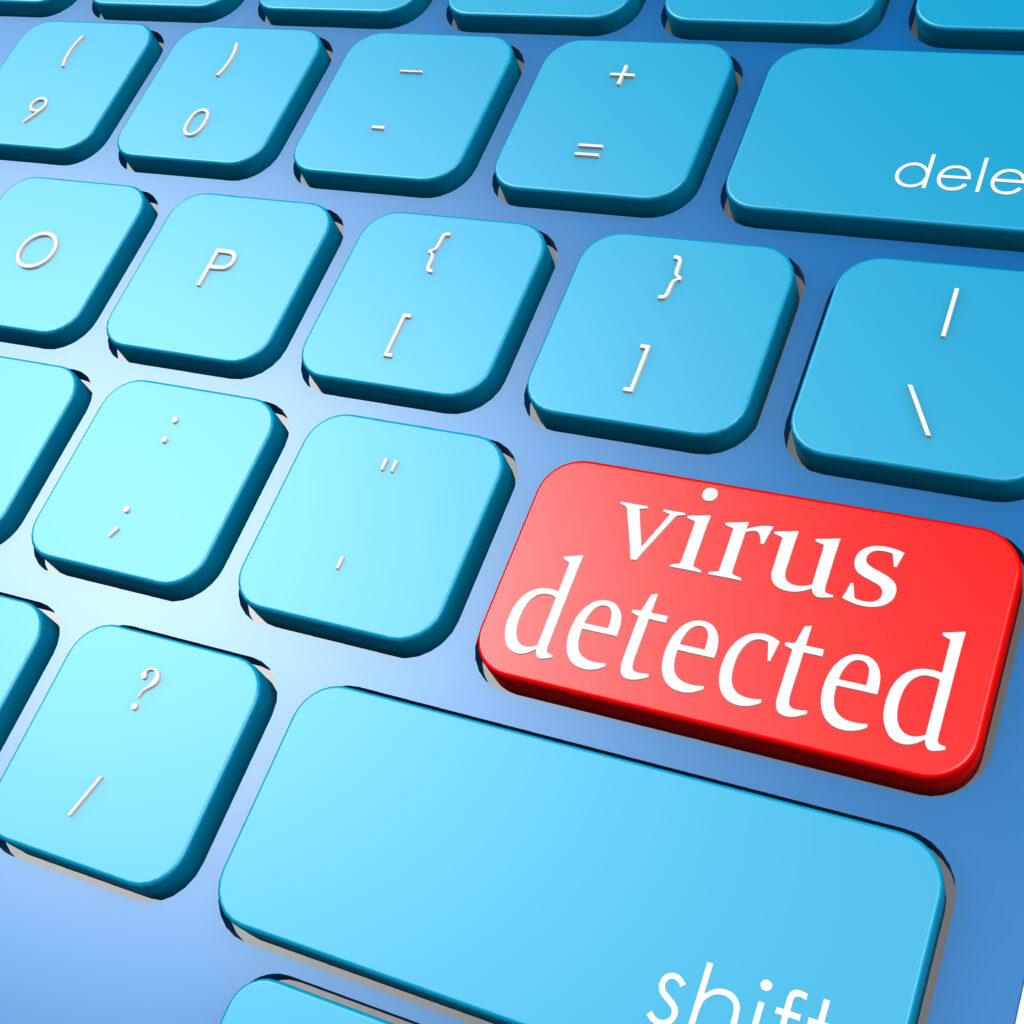In a world where downloading apps and software has become second nature, it’s easy to overlook potential dangers lurking in the background. Malware, malicious software designed to cause harm to your devices, can sneak in and wreak havoc without you noticing at first. Here are five signs that may indicate you’ve unknowingly downloaded malware and what to do about it.
Pop-up ads are appearing everywhere
There’s nothing quite as frustrating as trying to browse the web only to be bombarded with an endless stream of pop-up ads. While some websites are notorious for displaying ads, a sudden surge of pop-ups, especially on websites that don’t normally feature them, is a clear red flag. Pop-ups related to malware often contain advertisements for questionable products or services or, worse, link to malicious sites that aim to infect your device further.
This type of malware is often referred to as adware. It quietly installs itself on your system, hijacking your browser to display unwanted ads. Sometimes, clicking on these ads can even lead to the installation of more dangerous malware, compounding the problem. Even more insidious, some of these ads may masquerade as legitimate security warnings, trying to trick you into downloading fake antivirus software.
If you notice this happening, don’t click on the ads. Instead, immediately run a trusted malware scan to identify and remove any adware lurking on your device. It’s also a good idea to check your browser for any unfamiliar extensions or toolbars that may have been installed without your knowledge, as these can be signs of an adware infection.
Your browser keeps redirecting to unfamiliar sites
Another sign of malware is unexpected browser redirection. Suppose you’re attempting to navigate to a familiar website, like your favourite search engine or an online store, but find yourself landing on a strange, unfamiliar page instead. In that case, you may have malware on your hands. Redirecting malware works by hijacking your browser’s settings, changing your default search engine or homepage, or even directing you to malicious websites without your consent. In some cases, these redirects are subtle and can go unnoticed for a while.
For instance, a banking Trojan might send you a fake version of your bank’s website to steal your login credentials or other personal information. You might only notice something is wrong if you happen to glance at the web address and realize it’s not quite right. If this happens to you, first check your browser’s settings. Often, redirecting malware hides in browser extensions or add-ons, so review and remove any that you don’t recognize or didn’t install yourself. You should also reset your browser to its default settings and conduct a full system scan to ensure no other malicious software has taken root.
Mysterious security warnings or unknown apps
If an unknown app suddenly appears on your desktop or you start receiving alarming security warnings from software you don’t remember installing, it’s a sign that something is off. Fake security software (commonly known as scareware) can install itself through phishing links or drive-by downloads, only to flood your screen with bogus alerts about non-existent threats. These fake warnings are designed to panic you into action, often by urging you to purchase “full protection” from a virus that doesn’t actually exist.
Promises of instant malware removal usually accompany these messages, but they’re actually trying to steal your money. The so-called scan is typically just a ploy to convince you of an urgent threat, and if you pay, not only will you lose money, but you may also expose yourself to further infection. If you’re facing these kinds of warnings, don’t interact with the app or its notifications. Instead, rely on reputable antivirus software to scan your device and remove the scareware. Then, uninstall any programs you didn’t knowingly install.



Strange activity on your social media accounts
If friends or family start reaching out to ask about odd messages or posts on your social media profiles, it could be the work of malware. Some malicious software specialises in hijacking social media accounts to spread itself further, often by sending out phishing links or inflammatory messages that trick your contacts into clicking.
This type of malware can do more than just annoy your friends—it can damage your online reputation and even lead to identity theft. Additionally, the malware might be using your personal information, gathered from your profile, for other nefarious purposes like targeted scams or phishing attacks.
If you notice any strange activity on your social accounts, you should first change your passwords. Then, enable two-factor authentication (2FA) to add an extra layer of security. Finally, perform a malware scan on your device to ensure the root cause is removed.
Your system suddenly slows down or crashes
One of the most noticeable signs that something is wrong with your device is a sudden slowdown in performance. Malware, especially those that run in the background without your knowledge, can hog system resources like CPU and memory, leaving your device sluggish or prone to frequent crashes. You may also experience longer boot times, frozen applications, or the dreaded spinning “wait” icon far more frequently than usual.
In severe cases, malware can even disable system tools like Task Manager or prevent you from installing antivirus updates. This is a self-preservation tactic used by some types of malware to prevent you from removing it. To address this, open your Task Manager or Activity Monitor to see if any unknown processes consume resources. If you find any, it’s likely a sign that malware is running behind the scenes. Running a full antivirus scan will help detect and remove any malware slowing your system down.
If you’ve noticed any of these signs, whether it’s an influx of pop-ups, strange redirects, or a slow system, acting quickly is key. Always keep your antivirus software updated, avoid clicking suspicious links, and regularly scan your device for unwanted guests. By staying vigilant, you can keep malware at bay and ensure your devices run smoothly.



